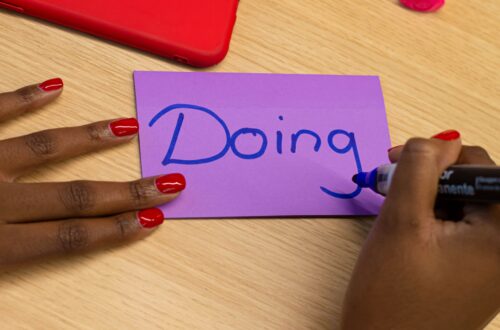What Is Burnout?
Burnout isn’t just being tired. It’s chronic workplace stress that hasn’t been successfully managed. You feel drained, mentally distant from your job, and often question your competence. It’s like being on a treadmill you can’t get off—your legs are moving, but you’re going nowhere.
Common Signs You’re Burning Out
Are you constantly exhausted, dreading work even on weekends, or snapping at small things? That’s not just a bad day—it might be burnout. Other red flags include insomnia, lack of motivation, cynicism, and even physical symptoms like headaches or stomach issues.
🚪 Why Quitting Isn’t Always the Answer
The Reality of the Job Market
Sure, walking away sounds tempting, but the job market doesn’t always play nice. New jobs bring new stress, and that honeymoon phase? It fades fast. Switching jobs might only trade one burnout for another.
Hidden Costs of Quitting
Leaving your job means financial instability, the stress of interviews, and potentially losing benefits. Sometimes it’s wiser to fix the house rather than move.
🔍 Identify the Root Cause
Is It the Workload or the Culture?
Burnout isn’t always about too much work—it can stem from toxic leadership, unclear roles, or a lack of recognition. Pinpoint the true source to tackle it effectively.
Emotional vs. Physical Burnout
Are you emotionally exhausted or just physically tired? The former might mean you’re lacking fulfillment; the latter could be from long hours. Knowing the difference helps you respond appropriately.
🕰️ Reclaiming Your Time and Energy
Time-Blocking for Sanity
Block your calendar for deep work, breaks, and even personal time. Treat your calendar like a shield against chaos.
Saying “No” Without Guilt
“No” is a complete sentence. You don’t have to justify protecting your time. Set realistic expectations with others, and don’t overload your plate.
🛑 Setting Boundaries Like a Boss
Email Etiquette That Saves Your Sanity
Set email-checking hours. Stop refreshing your inbox like it’s Instagram. That “urgent” message can wait until morning.
Create a “Shut Down” Ritual
Create a routine that signals the end of your workday—close your laptop, stretch, maybe take a walk. Train your brain to unplug.
🧹 Optimizing Your Work Environment
Make Your Space Work for You
Cluttered desk = cluttered mind. Personalize your workspace with items that spark joy—yes, like Marie Kondo says.
The Power of a Clean Desk
Less mess, less stress. Studies show a tidy desk can improve focus and mood. Try the “one-touch rule”: handle each item only once.
🏆 Leveraging Small Wins
The Psychology of Progress
Tiny achievements release dopamine. Make progress visible—checklists, trackers, or visual boards work wonders.
Celebrate Tiny Milestones
Finished that report? Crushed a meeting? Celebrate it. It’s the small wins that keep the big goals alive.
🌴 Use Your PTO—Yes, Really
Planning Mini Getaways
You don’t need a two-week trip to Bali. A weekend at a cabin or staycation can work wonders. The goal? Disconnect and recharge.
How to Take a Mental Health Day
No need to fake the flu. Mental health is a valid reason to take time off. Use it before you lose it.
👫 Strengthening Support Systems
Coworker Connections Matter
Find allies at work. Shared laughter and venting sessions can be surprisingly healing.
Leaning on Friends and Family
Don’t isolate yourself. Talk to loved ones—they’re not just there for the fun stuff.
🛠️ Try Job Crafting
Redesigning Your Role
Can you tweak your tasks to play to your strengths? Maybe swap projects or adjust responsibilities.
Playing to Your Strengths
When you do what you’re good at, work feels less like a grind and more like a groove.
🧘 Mindfulness Over Madness
Breathing Techniques at Your Desk
Box breathing, 4-7-8 breathing—try one for just 60 seconds and feel the shift.
Apps That Help You Chill
Try Headspace, Calm, or Insight Timer. Your phone doesn’t have to be a stress device.
🗣️ Talking to Your Boss Without Fear
Framing Your Burnout as a Problem to Solve
Don’t whine—collaborate. Say, “I want to continue being productive, but I’m reaching my limits. Let’s figure something out.”
Requesting Reasonable Changes
Maybe it’s a lighter caseload, flexible hours, or clearer priorities. Be direct, but respectful.
👩⚕️ Seeking Professional Help
Therapy Isn’t Just for Crises
A therapist can help you navigate burnout with tools and perspective. You don’t need to hit rock bottom to ask for help.
Coaching vs. Counseling
Coaches help with performance and goals; counselors tackle mental health. Both have their place in beating burnout.
🎯 Reconnect With Your “Why”
The Power of Purpose at Work
Remember why you started. Find the meaning behind your tasks and rekindle that spark.
When Your Values Don’t Align
If your job constantly clashes with your beliefs, it might be time to plan an exit—but not before you try fixing it.
📝 Conclusion
Beating burnout doesn’t always require quitting your job. Sometimes, it’s about taking back control of your time, setting firmer boundaries, and getting the right support. Small, consistent changes can make a massive difference. You don’t have to suffer in silence or sprint toward the exit. With the right strategies, you can thrive right where you are.
🙋♀️ FAQs
1. Can burnout go away on its own?
Not usually. Without intervention, burnout often gets worse. You need to make intentional changes.
2. How do I talk to my boss about burnout?
Be honest but solution-focused. Frame it as wanting to improve your performance and mental health.
3. How long does it take to recover from burnout?
It varies, but with consistent effort and support, you might feel better in weeks or a few months.
4. Should I take a leave of absence?
If burnout is severe, a leave can be helpful—but explore smaller changes first.
5. What’s the first step I should take today?
Start small: block 30 minutes for yourself. Breathe, reflect, and reclaim your day—one moment at a time.





